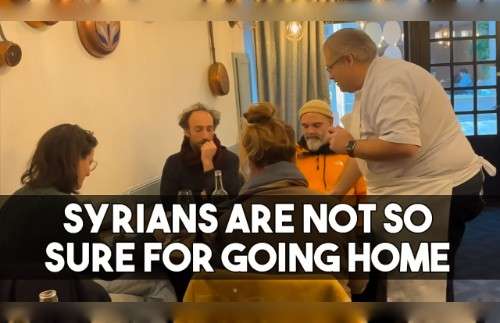
Counterterrorism officials in Indonesia are touting as a de-radicalization success story what they say is the transformation of Bali bomb-maker Umar Patek behind bars, and have just rewarded the convict for good behavior by granting his Philippine wife Indonesian citizenship.
Umar, whose real name is Hisyam bin Ali Zein, has served seven years of a 20-year sentence at a prison near Surabaya for his role in the 2002 Bali bombings – the country’s deadliest terrorist attacks – but he could be released on parole in 2024 on account of his good behavior, officials said.
“He is an example to fellow inmates both in terrorism and other cases, and also appeals to those outside to return to the right path,” Suhardi Alius, who heads the National Counterterrorism Agency (BNPT), told BenarNews on Friday.
Earlier this week, Suhardi handed Umar’s wife, Ruqayyah bin Husein Luceno, a certificate of Indonesian citizenship at a ceremony at the prison in Sidoarjo regency, where Umar is incarcerated. The inmate, whose beard is dyed red, touched the document as he stood between his spouse and the BNPT chief, while other officials surrounded them.
Suhardi said Umar had been requesting citizenship for Ruqayyah since 2011, and authorities finally granted his wish as a reward for years of good behavior in prison, where Umar was sentenced in 2012.
“We hope that he remains steadfast and will become a good person when he is free,” the BNPT chief said.
Umar, 49, was arrested in the Pakistani district of Abbottabad in January 2011, four months before U.S. Special Forces killed al-Qaeda leader Osama bin Laden in a raid in the same area. Umar was deported to Indonesia in August that year.
He testified during his trial in 2012 that he was involved in assembling the explosives used in the Oct. 12, 2002 bombings that targeted Bali nightclubs, but he denied taking part in planning the attack.
The bombings killed 202 people, mostly foreigners, including 88 Australians. The attacks were blamed on Jemaah Islamiyah, a Southeast Asian militant network linked to al-Qaeda.
In 2008, the Indonesian government executed Imam Samudra, Amrozi and Mukhlas for their roles in the bombings.
BNPT’s head of de-radicalization, Irfan Idris, said Umar was an example of successful efforts to reform convicted militants.
“Changing people is not as easy as turning the palms of our hands,” Irfan said.
“Of course, some change, some don’t and some are still thinking,” he added.
Irfan said Ruqayyah had played an important role in Umar’s transformation by remaining supportive and persuading him to abandon extremism.
Umar has been cooperative and followed all de-radicalization programs diligently, while his speeches and writings have been a big influence on other inmates, Irfan told reporters.
Indonesia, the world’s largest Muslim-majority country, has been hit by a string of terrorist attacks in the past two decades, with more recent strikes being blamed on militants affiliated with Islamic State.
In May 2018, Suhardi said at the time that some 800 convicted militants were enrolled in state-sponsored de-radicalization programs, which the government launched in 2012.

Umar: ‘Return to the right path’
In a video, Umar thanked his wife and family for their support.
“Those are the ones who have always encouraged me to embrace the Republic of Indonesia,” he said. “I appeal to those who still harbor extremist beliefs to return to the right path.”
So far, he has received a total of 10 months in sentence cuts for good behavior and could be released as early as 2024 after serving two-thirds of his term, if his request for parole is approved, prison Gov. Tonny Nainggolan told Kompas.com, an Indonesian news website.
Four years ago, BNPT officials said they already were succeeding in putting Umar on the path to reform.
In May 2015, prison officials allowed him to carry Indonesia’s red-and-white flag at a ceremony marking National Awakening Day, which commemorates the rise of Indonesian nationalism in the early 20th century.
“My motivation for bearing the Red and White flag is that I am an Indonesian citizen and I wish to show how I love my country, Indonesia,” the Bali bomb-maker said at the time.
This week, one of the victims of the Bali bombings, Chusnul Khotimah, said she had forgiven the attackers but questioned why some terror convicts and their families had been treated with kid gloves.
“Why do they make things easier for terrorists? Many former terrorism convicts live comfortably and their children are being taken care of by the state,” said Chusnul, who suffered burns to 70 percent of her body as a result of the attack.
“What about the victims and their children? No compensation has been granted to us. It’s not fair,” she told BenarNews.
Sidney Jones, director of a Jakarta-based think-tank, the Institute for Policy Analysis of Conflict (IPAC) and an expert on Islamic militancy in Indonesia, said she believed that Umar was sincere in his repentance.
“I have no doubt whatsoever. I believe he is genuinely remorseful after what he has done in Bali,” Jones told BenarNews.
“He changed at his own volition, not because of the success of the de-radicalization program, also because he has been treated well by the community around him,” she said.
Copyright ©2015,BenarNews. Used with the permission of BenarNews https://www.benarnews.org/english
Ukraine Reveals Handwritten Letter of a Fallen North Korean Soldier in Kursk
Syrians Are Not So Sure for Going Home
Golan Heights Druze Welcome New Syrian Rulers
Tibetans Demand Apology from the British Museum for Use of ‘Xizang’
Escaping from Scam Center on Cambodia’s Bokor Mountain
UN Security Council Meets to Discuss Children and Armed Conflict
10 Shocking Revelations from Bangladesh Commission’s Report About Ex-PM Hasina-Linked Forced Disappearances
Migration Dynamics Shifting Due to New US Administration New Regional Laws
Our You Tube Channel Promo
For Latest Updates
From Our Archive
We Do Believe that Digital Publication is the Best Way for Communication and Spreading Awareness















